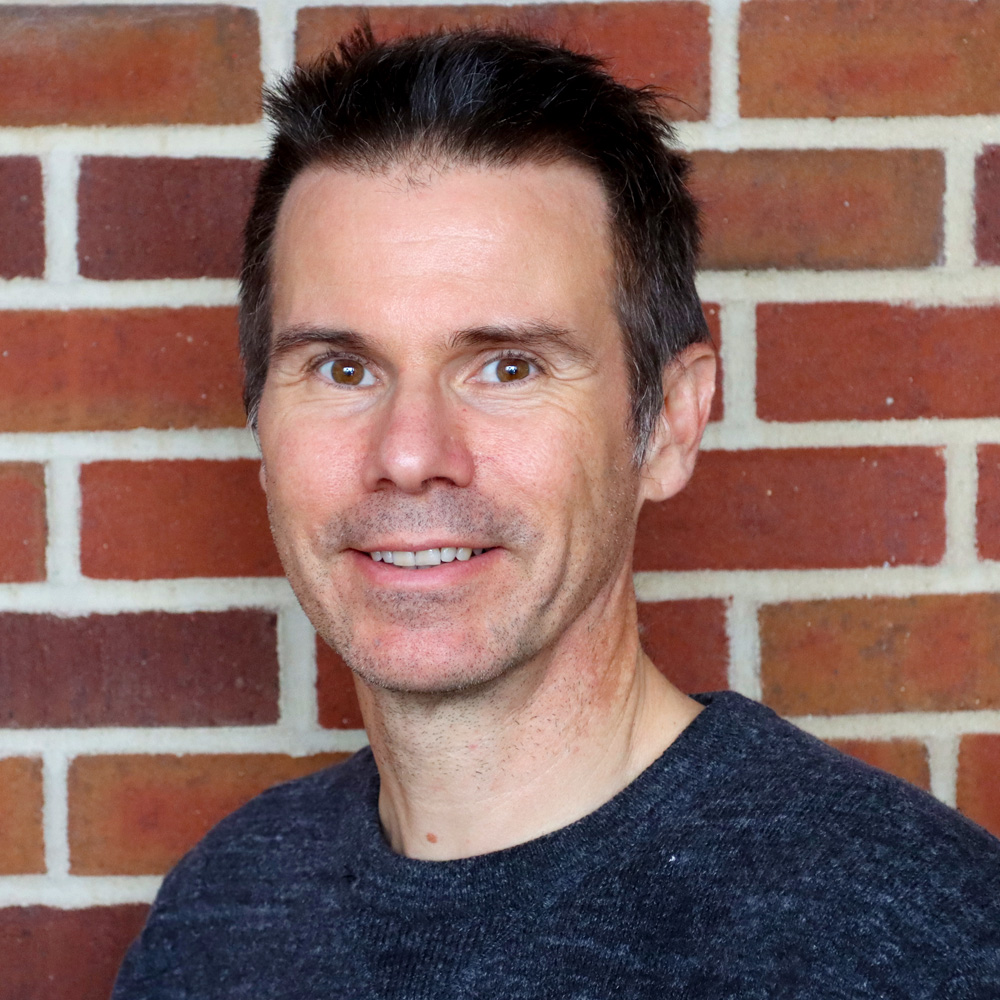Roger Albertson
Associate Professor of Biology
Dr. Albertson is a cell and developmental biologist who investigates one of the most fundamental processes of life: cell division. Proper cell division is essential for development of an organism and has particular relevance in cancer and stem cell biology. Dr. Albertson’s interests lie primarily in two aspects of cell division: 1) how cells coordinate cleavage furrow invagination with vesicle transport and 2) how asymmetric cell divisions specify the fates of mother / daughter progeny.
Cytokinesis relies on a contractile ring that drives plasma membrane invagination from the cell cortex. Recent studies have revealed that vesicle trafficking is also important for cytokinesis. This insight has raised new and exciting avenues of research: what are the sources of vesicles, how vesicle transport to cleavage furrows is regulated, and whether vesicles deliver proteins required for cytokinesis. Dr. Albertson has recently addressed these issues by conducting a genome-wide screen in the fruitfly, Drosophila, that revealed several new genes involved in cytokinesis. Current and future research goals include mapping these genes and characterizing their function using genetic and molecular approaches.
A second area of interest lies in factors that influence cell fate specification. During Drosophila development, neuronal stem cells undergo asymmetric cell divisions that yield daughter cells with unique fates. A recent study has indicated that a Drosophila strain infected with the bacterium Wolbachia are unable to properly specify neuronal cell fates. Yet, how Wolbachia influences cell fate determination at a cellular level is a complete mystery. Genetic, molecular, and cellular approaches will be used to monitor subcellular Wolbachia localization and to identify which cellular pathways the bacteria affect. Wolbachia is the pathogen that causes African River Blindness in humans. Thus, in addition to learning about Drosophila development, these studies will further our understanding of host-pathogen interactions at a cellular level.
Education
- B.S., 1977, University of Colorado at Denver
- Ph.D., 2003, University of Oregon
Courses
- Biology 210: Cell and Molecular Biology
- Biology 317: Genetics
- Biology 324: Developmental Biology
- Biology 401: Stem Cell Biology
Areas of Interest
Cell Division, Cell Polarity, Development, Drosophila
